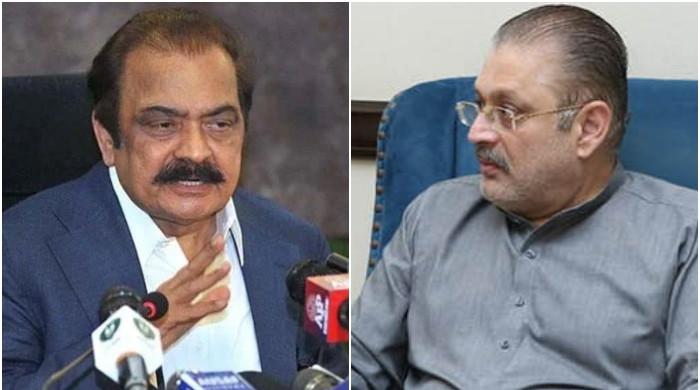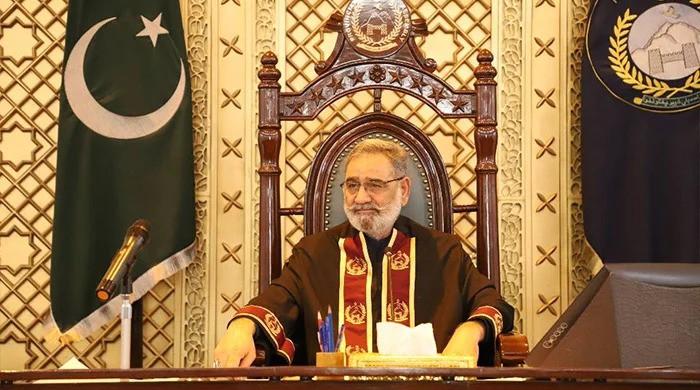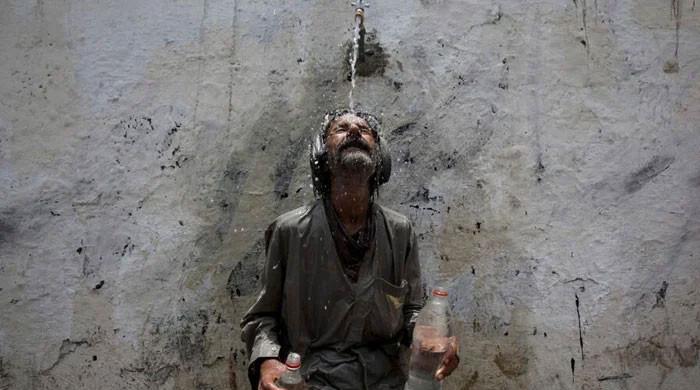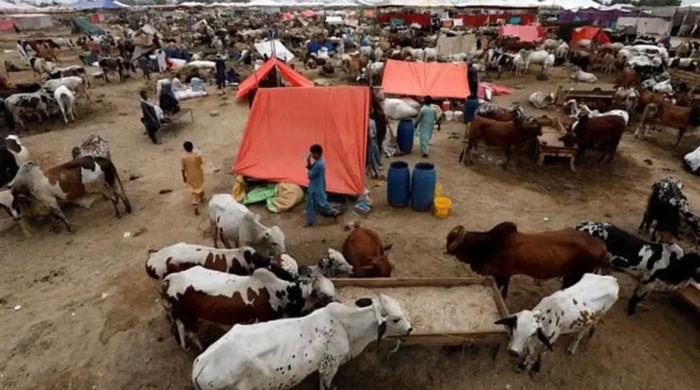'Private armies are illegal': CJP Isa remarks during hearing on enforced disappearances
CJP Isa acknowledges the rights of citizens to conduct peaceful demonstrations
January 02, 2024
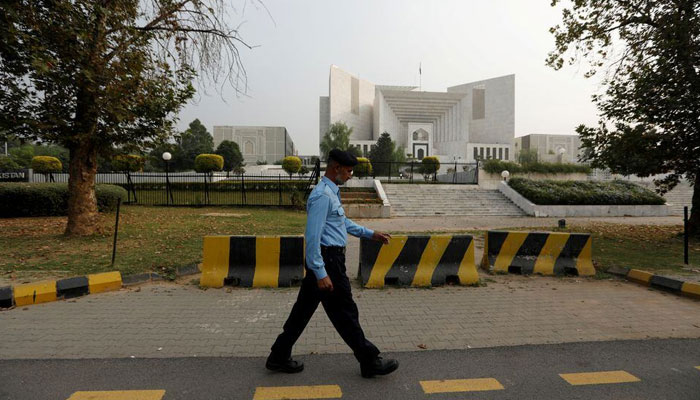
- SC takes up case after petitions filed by multiple individuals.
- Three-member bench headed by CJP Isa conducting hearing.
- "Problem of missing persons will be resolved," CJP Isa says.
ISLAMABAD: Chief Justice of Pakistan (CJP) Qazi Faez Isa Tuesday maintained that private militias are illegal and they cannot be against the state, as the Supreme Court conducted the hearing of a case pertaining to missing persons and enforced disappearances in the country.
The case was taken up by the apex court following petitions filed by multiple individuals including veteran politician and lawyer Aitzaz Ahsan.
The timing of the case is also significant, as Islamabad is currently witnessing a sit-in by the families, including women and children of the Baloch missing persons, who arrived in the capital after starting a long march from Turbat.
A three-member bench headed by CJP Isa and comprising Justice Muhammad Ali Mazhar and Justice Musrat Hilali took up the case and conducted its hearing.
The chief justice, following the adjournment of the hearing till tomorrow, said the court will now ensure the resolution of the missing persons issue, also summoning the Attorney General for Pakistan, Mansoor Usman Awan, to arrive before the bench in the next hearing.
"If we solve it together, the problem of missing persons will be resolved," he said, adding that the resolution of this matter will strengthen Pakistan internally.
CJP Isa also acknowledged the rights of citizens to conduct peaceful demonstrations who were protesting against the disappearances of their loved ones.
"There are also concrete cases of missing persons," the CJP said.
The chief justice also remarked that people in Pakistan often disappear after joining certain organisations, pointing at the anti-state entities present in the country. "The tradition of joining these organisations should end."
He maintained that what is happening in Pakistan does not happen anywhere in the world. CJP Isa insisted that all parties must "accept responsibility" in this matter.
The chief justice, however, pointed out that the petitions filed by Ahsan reflected a "political" inclination while raising the issue of enforced disappearances, as those named "disappeared" in the petitions were all politicians of a particular political party.
"Your application reflects politics. Don't make it political," CJP Isa said when addressing Shoaib Shaheen, the lawyer representing Pakistan Tehreek-e-Insaf (PTI) in the plea against the enforced disappearances of its members. The chief justice, however, termed them "influential".
"If there is a problem with the influential, they will come themselves," the CJP remarked.
During the hearing of the case, CJP Isa maintained that every institution should stay within its limits. "We thought that the issue of missing persons is important, so we filed a case."
Khushdil Khan Malik, the counsel representing a petitioner of the missing persons, requested that the court order the government to enact legislation related to enforced disappearances.
He complained that the commission to probe the issue was formed under Justice (retd) Javed Iqbal, but it has done nothing to ensure its resolution.
The court, the lawyer said, must ask the government why it never legislated on the missing persons issue for the last 50 years. Responding to which the CJP Isa said: "How can the court order the Parliament to enact such and such legislation?"




